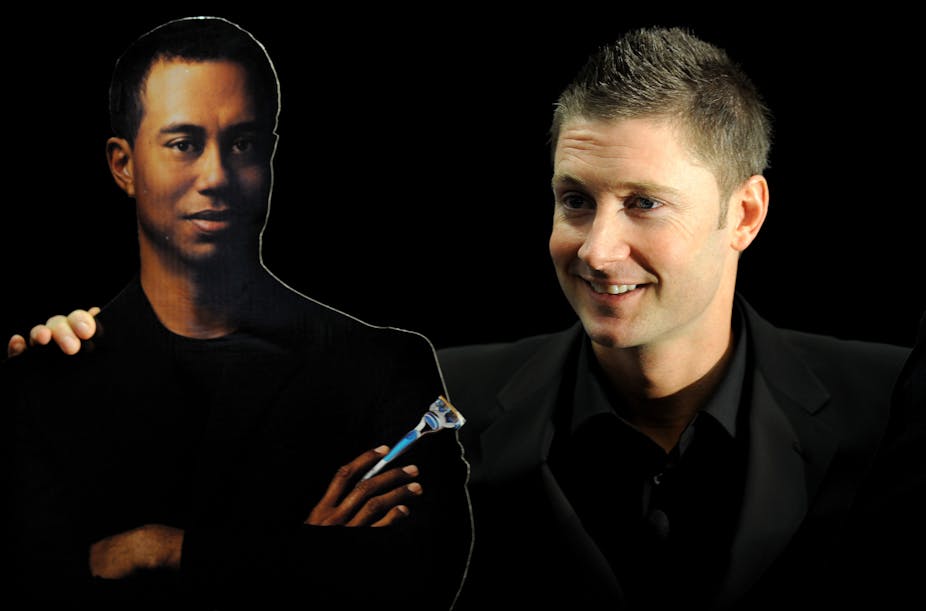*MEDIA & DEMOCRACY: Today, The Conversation launches a week-long series, looking at how the media influences the way our representatives develop policy. Robin Canniford explains why advertising spin is best left out of politics. *
Like many who float around in the world of marketing, I’ve been scratching my head at the decision of one of Australia’s biggest industries to further blur the distinction between the fantasy world of marketing and the already ambiguous world of environmental politics.
Piqued by the futility of the carbon tax, and the necessity to protect Australian trade sectors, Mitch Hooke of the Minerals Council of Australia says that it’s time to abandon the well trodden paths of lobbying representatives or seeking consultation for rational debate.
Times have changed, says Hooke. The forum in which public policy is developed and implemented is now one of “public contest through the popular media”.
With this new forum in mind, Hooke is rallying support behind a media and advertising strategy designed to sway public opinion. But does he understand the implications of what he’s doing?
How do ads work?
Advertising operates through a variety of communicative methods. First, ads can offer logical, rational messages. This method works for new products and inventions, but otherwise leaves us all a bit bored.
Second, ads can rely on a spokesperson to convey value and a need to aspire. Tiger Woods, Roger Federer, and Nicole Kidman say all that is necessary for accountancy firms and watchmakers.
Third, ads can operate through experiential messaging. They attach fantasies, feelings and fun to products and services. These kinds of ads demonstrate products and services as stage props, and provide scripts for us to play out roles and experiences in our own lives.
Which type of ad to choose?
So what kind of advertising will Hooke choose? Will he go with the logical messaging? Unlikely: he’s already discounted the need for rational debate.
Maybe he’ll go with a spokesperson… we can guess that Cate Blanchett won’t be putting her hand up to help, but others are ready to stand behind the message.
More likely he’ll go with the experiential strategy. These ads are liable to offer scripts and emotional messages to scare the living daylights out of us.
They are likely to ask us what kind of Australia we want to live in, and offer us a choice of economic boom versus inevitable decline.
Suspend your disbelief
Whether Hooke’s sentiments are wrong or right, to rely on a world of fantasy and make-believe over and above tested forums for public debate is foolish.
This strategy might actually backfire. The majority of people understand how ads work. Often we are aware of our willing suspension of disbelief surrounding the roles and scripts that ads present us with.
Just as we do at the theatre or the cinema, we let ads for cars, computers and clothes suck us headlong into artificial worlds for the fun they offer us.
Yet, when the stage directions are unbelievable, inauthentic or plain boring, we reject ads and the messages they present us with.
In short, Hooke’s strategy might go the same way as the Australian tourism’s “Where the bloody hell are you?” campaign, for which, by the way, Australia was dubbed the “dumb blonde of the world”.
Fantasy politics
Nevertheless, the possibility that Hooke’s strategy might succeed is more serious. If the Mineral Council’s goals are fulfilled via this campaign then the structure of Australian environmental decision making will have well and truly merged with advertising’s world of fantasy.
Equally, advertising’s world of fantasy will have become the new logic for environmental policy debate.
No matter how effective ads are, there is no replacement for rational, logical, sustained forms of public decision making, and we need look no further than the Bush administration to sense the kinds of errors that spring from replacing these processes with fantasy and PR spin.
So think again Mr Hooke, get back to changing our minds with facts, arguments and debate, and leave the emotional, popular media stuff in the world of consumer goods. The country will be better off for it.
This is the second part of our Media and Democracy series. To read the other instalments, follow the links here:.
Part One: Selling climate uncertainty: misinformation in the media
Part Two: Forget the fantasy politics - advertising is no substitute for debate
Part Three: Democracy is dead, long live political marketing
Part Four: Selling the political message: what makes a good advert?
Part Five: Drowning out the truth about the Great Barrier Reef
Part Six: Event Horizon: the black hole in The Australian’s climate change coverage
Part Seven: Spinning it: the power and influence of the government advisor
Part Eight: Cops, robbers and shock jocks: the media and criminal justice policy
Part Nine: Bad tidings: reporting on sea level rise in Australia is all washed up
Part Ten: Big money politics: why we need third party regulation
Part Eleven: Power imbalance: why we don’t need more third party regulation
Part Twelve: Scientists vs farmers? How the media threw the climate ‘debate’ off balance
Part Thirteen: Warning: Your journalism may contain deception, inaccuracies and a hidden agenda
Part Fourteen: The hidden media powers that undermine democracy

